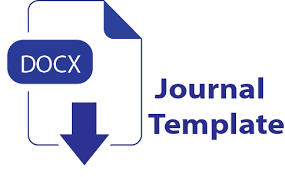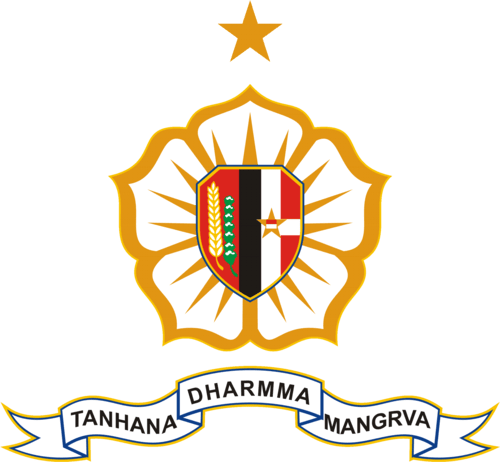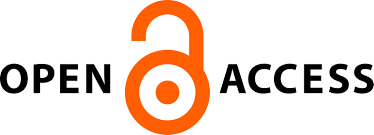Publication Ethic
Publication Ethics & Malpractice Statement
Proceeding Jakarta Geopolitical Forum
Ethical Standards and Misconduct
Proceeding Jakarta Geopolitical Forum adheres strictly to the standards and guidelines of the Committee on Publication Ethics (COPE), particularly concerning research misconduct and fraud. COPE provides a code of conduct and best practice flowcharts to assist publishers and editors in identifying and addressing allegations of misconduct.
If allegations of research misconduct arise, the publisher and editors are responsible for investigating and resolving these matters appropriately. JGF follows COPE’s recommendations as outlined in the “Dealing with Misconduct” section of The COPE Report (1999).
JGF also complies with the Principles of Transparency and Best Practice in Scholarly Publishing as defined by COPE and the Directory of Open Access Journals (DOAJ). Several journal policies reflecting these principles are outlined below.
Authorship and Contributorship
Authorship
Authors must meet all four criteria established by COPE for authorship:
-
Significant contribution to the conception/design, data acquisition, analysis, or interpretation; and
-
Active involvement in drafting or critically revising the manuscript for important intellectual content; and
-
Final approval of the version to be published; and
-
Accountability for all aspects of the work, ensuring accuracy and integrity.
All named authors on submissions to JGF must satisfy these criteria. Those not meeting these should be acknowledged appropriately.
Early-career researchers are encouraged to consult COPE’s authorship guidelines for ethical practices and dispute resolution.
Contributorship
Individuals contributing to the work but not meeting full authorship criteria will be acknowledged.
Corresponding Author
Responsible for ensuring all authors consent to submission, are informed of the peer review process, and understand any publication fees. Readers may contact the corresponding author for scholarly discussion.
Changes in Authorship
Authorship must be finalised before submission. Requests for additions, removals, or reorderings require approval from all authors and submission of an Authorship Change Form. Changes post-publication are reviewed, and if accepted, a formal Correction Notice will be issued.
Refer to COPE guidelines for detailed policies on authorship modifications before and after publication.
Use of Artificial Intelligence (AI) Technology
Authors must disclose any use of AI-assisted technologies (e.g., ChatGPT, Grammarly, DALL-E) in manuscript preparation, specifying:
-
The AI tool(s) used;
-
The purpose of AI use (e.g., language editing, data visualisation);
-
The manner of use (e.g., text generation, data analysis, image creation).
Declarations must appear in both the cover letter and manuscript sections (e.g., Acknowledgments for writing assistance, Methods for data processing).
Authors should submit supplementary information detailing AI input, output, and editorial oversight. Editors may request further details.
AI tools cannot be credited as authors. Human authors retain full responsibility for content accuracy, integrity, and originality. Authors must thoroughly review AI-generated text to prevent errors or bias and ensure no plagiarism occurs.
Plagiarism, Redundancy, and Preprints
Plagiarism and Self-Plagiarism
Defined as using others’ work or one’s own previous work without proper citation. JGF employs plagiarism detection software to screen submissions.
-
Manuscripts must have similarity scores below 20%.
-
Manuscripts exceeding this will be rejected or require revision.
Authors unsure of ethical citation are encouraged to consult resources from institutions such as MIT, Stanford, or Plagiarism.org.
Duplicate (Redundant) Publication
Submitting substantially the same work to multiple venues without citation is prohibited.
Previous publications in other languages or abstracts published in proceedings must be fully disclosed and cited.
Unattributed reuse of published material will be investigated per COPE guidelines and may result in rejection or retraction.
Preprint Policy
Authors may upload manuscripts to non-commercial preprint servers before acceptance, provided full copyright is retained. Manuscripts must cite preprints on submission.
After official publication in JGF, authors should update preprints with the final published article link.
JGF does not accept manuscripts formally published or under review elsewhere.
Peer Review Process
JGF employs a double-blind peer review ensuring anonymity for authors and reviewers.
Each manuscript is reviewed by at least two independent experts.
Editors or board members involved as authors in submissions are excluded from related editorial decisions.
Decisions based on reviewer recommendations:
-
Accepted: approved for publication
-
Revised: requires modifications and resubmission
-
Rejected: does not meet standards
Revised manuscripts may undergo further review or editorial decision.
Reviewers must maintain confidentiality and declare conflicts of interest. Editors manage conflicts by appointing independent reviewers/editors as needed.
Handling Complaints and Appeals
Appeals against editorial decisions must be submitted in writing to the Editor-in-Chief via the journal system, detailing reasons and any new evidence.
All appeals are considered in line with COPE’s complaint guidelines.
Authors must not submit manuscripts to other journals during appeal.
The Editor-in-Chief’s decision is final.
Conflicts of Interest
Authors, reviewers, and editors must disclose any financial, academic, political, or personal interests that may affect objectivity.
Undisclosed conflicts discovered post-publication may lead to retraction.
Reviewers and editors with conflicts will be recused.
Data Sharing and Reproducibility
Authors are encouraged to share supporting data, code, and materials.
Confidentiality or privacy concerns may justify waivers.
Data should be cited properly, with a Data Availability Statement included.
JGF collaborates with stakeholders to maintain credible, transparent research.
Ethical Oversight and Informed Consent
Research involving humans requires ethical approval and informed consent documentation.
Identifiable data must be anonymised unless consented for publication.
Animal research must comply with institutional/national guidelines.
Reviewers must maintain confidentiality throughout the review.
Intellectual Property and Licensing
Authors retain copyright of their work.
Manuscripts are licensed under Creative Commons Attribution-ShareAlike 4.0 International (CC BY-SA 4.0) upon acceptance.
Any suspected ethical violations should be reported to the Editor-in-Chief.
Post-Publication Corrections and Retractions
JGF supports transparency by facilitating:
-
Post-publication comments to foster academic discourse
-
Corrections to rectify errors affecting interpretation
-
Retractions in cases of invalid findings or ethical breaches, following COPE guidelines
-
Expressions of Concern pending investigation outcomes
All post-publication notices are clearly documented and accessible.










